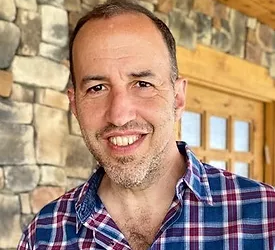Recorded on April 19, 2022, this panel discussion was presented by the Citrin Center for Public Opinion Research. The panel featured Amanda Iovino, Vice President, Polling Director, WPA Intelligence, Youngkin for Governor; Anaís López, Senior Analyst, BSP Research; David Shor, Head of Data Science, Blue Rose Research; and Mike Madrid, Principal, GrassrootsLab.
You May Like
Event Type
Recap
Published April 22, 2022
Catherine Hall: “Racial Capitalism: What’s In A Name?”
Racial capitalism has become a widely used term – but how should we define it and what specific forms does it take? Recorded on April 20, 2022, this talk by esteemed historian Catherine Hall focused on 18th-century Jamaica and the ways in which two separate sets of practices – racisms and capitalism – intersected to form a system embedded in both the metropolitan and the colonial states.
Learn More >Matrix On Point
Recap
Published April 15, 2022
The Future of Money: Mobile Money, Social Media, and Cashless Economies
Focusing on forms of cashless payment, such as mobile money and apps, this "Matrix on Point" panel explored questions about how the social connections made through money are changing, and what the implications might be for our understanding of money, trust, and social connection. The panel featured Kevin Donovan, Lecturer in the Centre of African Studies at the University of Edinburgh; Lana Swartz, Assistant Professor of Media Studies at the University of Virginia; and Jayati Ghosh, Professor of Economics at the University of Massachusetts at Amherst. The panel was moderated by Marion Fourcade, Professor of Sociology at UC Berkeley and Director of Social Science Matrix.
Learn More >Podcast
Interview
Published April 12, 2022
What Happened to the Week? An Interview with David Henkin
For this episode of the Matrix podcast, Julia Sizek interviewed David M. Henkin, the Margaret Byrne Professor of History, about his book, The Week: A History of the Unnatural Rhythms that Make Us Who We Are. With meticulous archival research that draws on a wide array of sources — including newspapers, restaurant menus, theater schedules, marriage records, school curricula, folklore, housekeeping guides, courtroom testimony, and diaries — Henkin reveals how our current devotion to weekly rhythms emerged in the United States during the first half of the 19th century.
Learn More >

